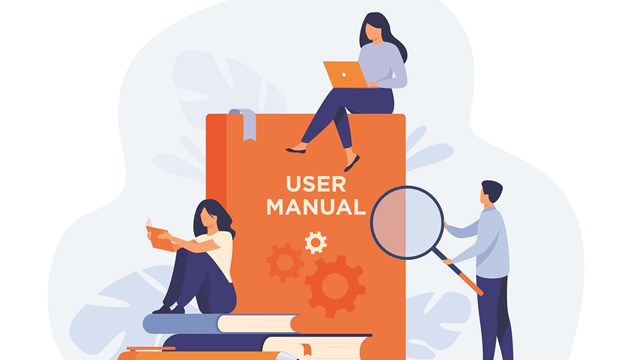Whether your community is a condo, HOA, or co-op, proper record-keeping is the difference between a healthy property and one headed toward peril. And while meeting minutes and election results require well-organized documentation, records such as bills, invoices, bank statements, receipts and taxes informs a community’s long-term financial health—and how these financial records are stored and accessed is critically important.
What You Must Know
Of course, board members and trustees are usually volunteers—and they may or may not have a background in bookkeeping – so while it’s not realistic to insist that they know as much about accounts payable as a professional might, there are a few important items that are essential for them to familiarize themselves with. These include resident arrears, cash balances, unusual items such as special repairs or overtime, long-term unpaid invoices, reserve activity and balances, profit-and-loss statements (also called income statements), accounts payable and receivable, subsidiary ledgers, bank reconciliations, check registers, expense and income vs. the budget, and major capital projects coming up.
Many of these items are contained in a monthly report provided by the property manager, which is reviewed by the treasurer or other board members each month. “If they have a property manager, they pretty much get the balance sheet and the income statement, because usually the management companies we work with have resident accountants on staff who know this material well,” says Mark Love, principal of M Love & Associates, a certified public accounting firm in Holden, Massachusetts. “But the self-managed or smaller ones, they would be inclined to do cash receipts and disbursements.” A cash-basis system only shows the cash inflows and outflows. Associations that are tracking their finances only through cash are just getting a quick snapshot of how much money is in the bank, and if a regular payment hasn’t gone through, or a long-term budget item isn’t included, the snapshot can be inaccurate.
Whether a board chooses to receive an in-depth financial statement or a cash basis report, a monthly report is essential. And even a brief report is better than no report. “No reporting at all,” Love says, “is a terrible policy or practice. One hundred percent of the time, whenever we come into a problem or witness a problem, it’s because there was a lack of reporting. So even if it’s not perfect, it still needs to be provided. Perfect is nice; provided consistently is better.”
There are, of course, serious downsides a lack of consistency in financial reporting. “The more common thing is you end up not disclosing a trend, a problem, a potential loss, a potential bad year about to unfold, if you don’t keep on top of your numbers every single month,” Love says. “The thing I hesitate to throw out there is that it’s an opportunity for all kids of impropriety. It does happen.” As a certified forensic auditor, he has seen it all: “Usually if someone is withholding information, making excuse after excuse, month after month, that’s usually pretty telling that there’s some kind of problem and boards shouldn’t tolerate that.”
Love estimates that 95 percent of boards today do want, and get, solid monthly reports, though there are still a few boards that will let those financials slide for six months or longer. “The condominium associations we deal with are tenfold more sophisticated than they were 10 years ago,” he says. “Their board members are business savvy; many came out of the private sector, owned their own businesses. What used to be the sleepy little homeowner association, the residential complex, is essentially run like a small business, which it is.”
Sondi Stanton, owner of Stanton & Co., an accounting firm in Woburn, Massachusetts, agrees. “Usually, there are one or two people on the board with some kind of a financial background,” she says. “And most (monthly) packages we’ve seen, even if you’re not a financial person, if you take the time to go through it, you can understand it. I’ve sat down with a lot of boards, and even people who don’t have a financial background have a general understanding of the reports.”
A savvy board treasurer, she adds, can help other board members and trustees to understand the information, and there are other opportunities out there, like seminars offered by condominium organizations, that will help board members and trustees learn about association finances.
“If an association has a management company, and they’re respectable, it’s going to get pretty decent record-keeping. The larger companies usually do a good job; they have CPAs on staff,” she says. “The biggest mistake board can make is to let the dollar cloud their judgement when they have someone doing their accounting. They have a fiduciary responsibility to the unit owners, and if you don’t have good accounting records, good measurement tools …. It’s a sad thing; sometimes you see boards try to save money and end up with financial nightmares.”
Record Safekeeping
There are two basic requirements to ensure that a property’s financial documents are in fact being handled and stored properly: identifying who can view the records, and ensuring that the records are kept in a secure location.
Financial reports, Love notes, are not for the board’s eyes only. “I think everybody has the right to have access to it,” he says. “But not everyone is that interested. We find lots of times, when we do present (the annual financial report) to an association and pass out a print copy, we probably pick up 50% of them at the end of the meeting. They got the information they wanted… but they don’t need to have more paper in their lives. Some will come up after the meeting and ask us to forward it to their email address, and we’re happy to do that, because we work for the entire association, not just the board and not just the property management company.”
When the association’s auditor performs the annual review, necessary information will be requested—and in the meantime, confidential information needs to be kept secure and well organized.
“The most common mistake with record keeping is dependence on others to maintain historical information,” says Richard Montanye, CPA with the Uniondale, New York-based tax and business consulting firm Marin & Montanye, LLP “Frequently, boards need to look back at financial documents that cannot be located. I actually had a board once lose the records for a certificate of deposit in the reserve fund. After the board members changed, it ceased to be reported as part of their reserves. When we brought it to their attention, they thought they were rich again!”
“Most management companies keep the records,” Stanton says. “A lot of them have everything online now.” But, she notes, small associations may not even have a community office, so records may be kept in the homes of board members.
“I recommend the belt-and-suspenders approach,” Love adds: A copy in the management office, and a copy with the board treasurer or secretary, or both. While records have traditionally been paper-based, the last five years have seen a trend toward electronic— particularly cloud-based—documents, he notes.
And those records need to be kept for years. “The textbook answer is, you need to retain, electronically or otherwise, for seven years, because the condom association files a tax return; and because it files a tax return it is, however unlikely, subject to an examination by the IRS and they can put seven years into play. So there’s a technical answer of seven years, but practical part is probably three to five years.”
The tax requirement apparently comes as a surprise to some associations, Stanton says. “We do see associations that don’t file tax returns. Every association is required to file.” On the other hand, she notes, some associations call her firm “about the tax side— like if they’re going to get a cell tower on top of their building and want to know about tax implications.”
Even if an association has scrapped paper for computer files, electronic record-keeping doesn't stop with simple cloud-based storage. With that in mind, it’s important for a board to institute written procedures for the maintenance and destruction of documents.
Streamlining Operations
While technology advances can help boards keep better financial records and secure access to them, there are time-proven approaches (like professional audits) that can better prepare boards for the managing of these all-important documents.
To make the CPA’s job—and in turn the board’s—easier, Montanye advises maintaining the least number of bank accounts possible. Additionally, he says board officers should be signatories on all bank accounts, and reserve funds should be centralized.
“Many boards are concerned with maintaining Federal Deposit Insurance Corporation (FDIC) coverage,” says Montanye. “The result of that can often be multiple accounts and banks being used, complicating recordkeeping and reporting,” says Montanye. “There are investment vehicles available that provide centralized reporting and FDIC coverage of the funds without the need to use multiple banks.”
To further simplify operations, Montanye suggests that boards develop a collective calendar of deadlines to include date stamps for tax reporting, board meetings and insurance renewals, among other line items. “The best answer is to have an active board and committees to keep tabs on all transactions and monthly activities. No one individual should be able to execute financial transactions unilaterally,” says Montanye.
Board Resources
And volunteer board members and trustees should realize they’re not alone; there are plenty of places to turn for advice and assistance with those all-important financial documents. “I don’t think every association avails themselves of is what our preference is—to present the financial statement and the tax return to the board, first, and then have an opportunity to present it to the annual meeting of the association to answer questions,” Love says. “I think that’s good practice, good policy. It’s transparent and it gives everybody the opportunity to see the work that’s being done by capable people, and to ask whatever questions they might have. Those are our own personal healthiest relationships and those seem to be the healthiest associations: the ones that one to be inclusive.
“Associations don’t ask, or don’t think they can ask, or for whatever reason, choose not to ask” for services that are available to them. “It’s a shame for them not to avail themselves of that, particularly when we’re working on their behalf, for their interest,” he says.
For boards that do not have a property manager or self-govern, board members can also reach out to industry organizations in their municipality or state for guidance and resource materials. “I think the first resource would be the corporate accountant,” says Montanye. “Management companies also provide advice on how and where to maintain records. There are multiple membership organizations that provide classes on board operations that would be helpful.”
For new board members and trustees, there is always a learning curve, which is understandable for a wide variety of board responsibilities. When it comes to finances, however, there is no room for error. To this end, industry experts say boards with accountants must tap that resource whenever the smallest of questions arise. And whether a board is self-managed or has a financial advisor, all documentation should be thoroughly vetted and backed up.
Simple, basic practices-like good record keeping, regular maintenance and good communication between the condo/HOA board and the building administrators are keys to keeping the community fiscally sound and on track.
W. Brad King is a freelance writer and a frequent contributor to New England Condominium. Associate Editor Pat Gale contributed to this article.







Leave a Comment